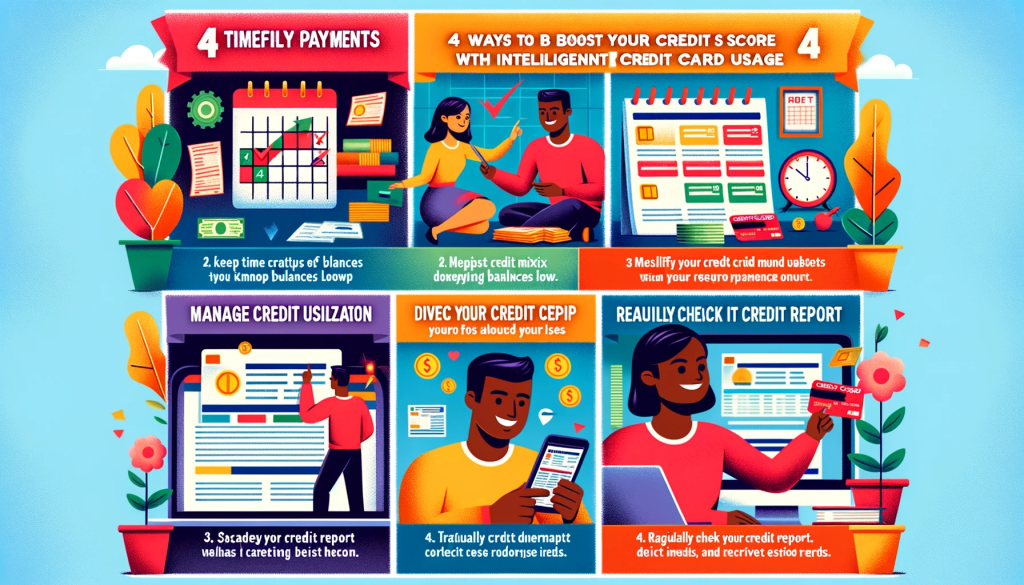4 Ways to Boost Your Credit Score with Intelligent Credit Card Usage

Your credit score is a critical factor that lenders consider when evaluating your creditworthiness. A higher credit score can open doors to better interest rates, higher credit limits, and improved financial opportunities. One powerful tool at your disposal to enhance your credit score is your credit card. By using it wisely, you can positively impact your credit history and, consequently, your credit score. Here are four smart strategies to boost your credit score through intelligent credit card usage.
Timely Payments: The Foundation of a Strong Credit Score
The most influential factor in determining your credit score is your payment history, accounting for about 35% of the total score. Making timely payments on your credit card is crucial for maintaining a positive credit history. Set up automatic payments or reminders to ensure that you never miss a due date. Consistently paying your credit card bill on time demonstrates financial responsibility and reliability, which are key components of a high credit score.
Manage Credit Utilization: Keep Balances Low
Credit utilization, or the ratio of your credit card balances to your credit limits, is another significant factor affecting your credit score. Aim to keep your credit utilization below 30% to demonstrate responsible credit management. High credit card balances relative to your credit limit can be seen as a red flag, potentially lowering your credit score. Regularly review your credit card statements and strive to pay down outstanding balances to maintain a healthy credit utilization ratio.
Diversify Your Credit Mix: A Balanced Approach
Credit scoring models also consider the variety of credit accounts you have, such as credit cards, mortgages, and installment loans. While it’s not advisable to open new credit accounts solely for the purpose of boosting your credit score, having a mix of different types of credit can positively influence your score. If you only have credit cards, consider diversifying your credit portfolio over time. However, always make financial decisions based on your needs and goals, not just for the sake of improving your credit score.
Regularly Check Your Credit Report: Detect and Correct Errors
Mistakes on your credit report can negatively impact your credit score. Regularly check your credit report for inaccuracies, such as incorrect account information or unauthorized inquiries. If you discover any errors, dispute them promptly with the credit bureaus to have them corrected. Monitoring your credit report also allows you to detect any signs of identity theft or fraudulent activity, ensuring the accuracy of your credit history and safeguarding your credit score.
Conclusion:
Your credit card can be a powerful tool for building and improving your credit score when used intelligently. By making timely payments, managing credit utilization, diversifying your credit mix, and regularly checking your credit report, you can take proactive steps to boost your credit score. Remember, building a strong credit history is a gradual process, so be patient and stay committed to responsible credit card usage for long-term financial success.

